About Our People
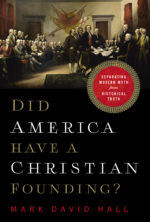 Mark David Hall’s (Politics) book, Did America Have a Christian Founding?, was published this month by Thomas Nelson Books. In it, Mark debunks the assertion that America’s founders were deists who desired the strict separation of church and state and instead shows that their political ideas were profoundly influenced by their Christian convictions. In addition, Mark received word last week that the university’s John Dickinson Forum, created to promote thoughtful study, discussion and debate about America’s founding principles, was designated an “oasis of excellence†by the American Council of Trustees and Alumni.
Mark David Hall’s (Politics) book, Did America Have a Christian Founding?, was published this month by Thomas Nelson Books. In it, Mark debunks the assertion that America’s founders were deists who desired the strict separation of church and state and instead shows that their political ideas were profoundly influenced by their Christian convictions. In addition, Mark received word last week that the university’s John Dickinson Forum, created to promote thoughtful study, discussion and debate about America’s founding principles, was designated an “oasis of excellence†by the American Council of Trustees and Alumni.
Several of the Graduate School of Counseling faculty were in Seattle in mid-October for the Association for Counselor Education and Supervision 2019 National Conference. The group jointly presented on the topic, “Setting the Table for Critical Conversations Around Religious Privilege in Counselor Education.†Those in attendance included Michelle Engblom-Deglemann, Lorraine DeKruyf, Richard Shaw, Keith Dempsey, Unique Page and Keleigh Blount. Lorraine also presented on “School Counseling Site Supervisor Training: Overcoming Constraints Using a Brief Experiential Model†with Dr. Diana Gruman from Western Washington University and Dr. Lucy Purgason from Appalachian State University.
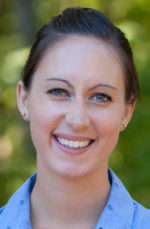 Paige Parry (Biology) collaborated with three colleagues to publish a research paper, “Multi-scale integration of tree recruitment and range dynamics in a changing climate,†in Global Ecology and Biogeography, a bimonthly peer-reviewed scientific journal that specializes in publicizing research in the field of macroecology. Paige worked with Jeff Carroll (Colorado State University), Patrick Martin (the University of Denver) and Matthew Talluto (Leibniz Institute of Freshwater Ecology and Inland Fisheries in Berlin, Germany) to write the piece. The paper describes a novel integrated metamodeling approach designed to assimilate diverse datasets to improve projections of species responses to climate. Parry and colleagues applied this modeling approach to predict changes in distributions of western North American tree species while directly integrating information on tree recruitment.
Paige Parry (Biology) collaborated with three colleagues to publish a research paper, “Multi-scale integration of tree recruitment and range dynamics in a changing climate,†in Global Ecology and Biogeography, a bimonthly peer-reviewed scientific journal that specializes in publicizing research in the field of macroecology. Paige worked with Jeff Carroll (Colorado State University), Patrick Martin (the University of Denver) and Matthew Talluto (Leibniz Institute of Freshwater Ecology and Inland Fisheries in Berlin, Germany) to write the piece. The paper describes a novel integrated metamodeling approach designed to assimilate diverse datasets to improve projections of species responses to climate. Parry and colleagues applied this modeling approach to predict changes in distributions of western North American tree species while directly integrating information on tree recruitment.
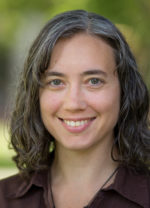 Cherice Bock (seminary) wrote an entry on “Watershed Discipleship” in the book An Ecotopian Lexicon (University of Minnesota Press), released in October. The book suggests new words, novel interpretations of English words, and loanwords from other languages that can help us imagine how to adapt and even flourish in the face of socioecological adversity. Bock’s entry discusses the Christian framework of watershed discipleship: participating as stewards in the community of creation, building partnership networks of care within our local regions (watersheds), and emphasizing equity based on Christ’s invitation to love our neighbors.
Cherice Bock (seminary) wrote an entry on “Watershed Discipleship” in the book An Ecotopian Lexicon (University of Minnesota Press), released in October. The book suggests new words, novel interpretations of English words, and loanwords from other languages that can help us imagine how to adapt and even flourish in the face of socioecological adversity. Bock’s entry discusses the Christian framework of watershed discipleship: participating as stewards in the community of creation, building partnership networks of care within our local regions (watersheds), and emphasizing equity based on Christ’s invitation to love our neighbors.
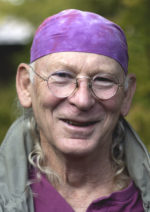 Ed Higgins (Professor Emeritus, English Department/Writer-in-Residence) is coeditor of the anthology Hunger: The Best of Brilliant Flash Fiction 2014-2019. The collection was released at the Fort Collins Book Festival Oct. 19. In addition to coediting the story selections, Ed also wrote the anthology’s introduction, setting forth elements of this form of brief storytelling as, essentially, “Tell us a full story in 1,000 words or fewer.†The anthology’s international stories have been chosen from the Ireland/U.S.-based online journal Brilliant Flash Fiction. Several anthology authors gave readings, and flash fiction workshops were offered at the launch event.
Ed Higgins (Professor Emeritus, English Department/Writer-in-Residence) is coeditor of the anthology Hunger: The Best of Brilliant Flash Fiction 2014-2019. The collection was released at the Fort Collins Book Festival Oct. 19. In addition to coediting the story selections, Ed also wrote the anthology’s introduction, setting forth elements of this form of brief storytelling as, essentially, “Tell us a full story in 1,000 words or fewer.†The anthology’s international stories have been chosen from the Ireland/U.S.-based online journal Brilliant Flash Fiction. Several anthology authors gave readings, and flash fiction workshops were offered at the launch event.
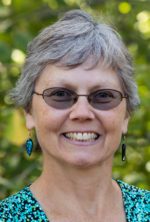 Jenny Lehman (Business) presented at the Academy of Financial Services conference in Minneapolis on Oct. 16. Her presentation, “Work-Life Balance and Burnout Among Women in Financial Planning,†was coauthored with Cindy Riecke, Rebecca Henderson and Aman Sunder from the College for Financial Planning.
Jenny Lehman (Business) presented at the Academy of Financial Services conference in Minneapolis on Oct. 16. Her presentation, “Work-Life Balance and Burnout Among Women in Financial Planning,†was coauthored with Cindy Riecke, Rebecca Henderson and Aman Sunder from the College for Financial Planning.
